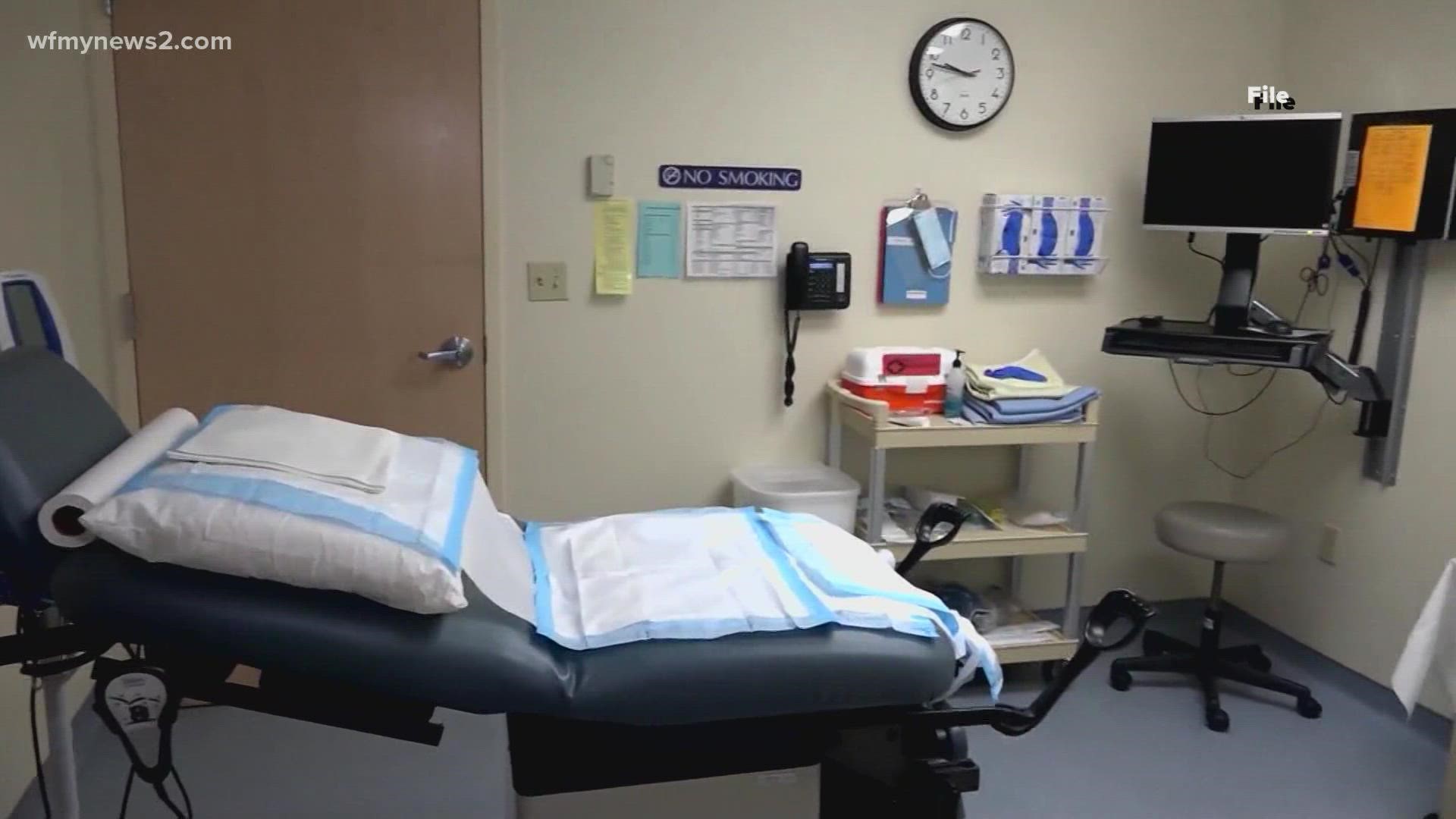GREENSBORO, N.C. — A leaked report Monday showed the Supreme Court may overturn the landmark abortion case Roe vs. Wade, leaving many uncertain about what could happen next.
What is an abortion?
An abortion is, in simple terms, the termination of a pregnancy. Officials with 'A Woman's Choice' in Greensboro said there are two types of abortion: through medication or surgical.
With the pill method, the patient takes medication at the clinic offices. Then they take more medication at home.
"What the pills do is basically (is) they stop the pregnancy and they dispel all the contents of the pregnancy tissue from your uterus and you do so in the privacy of your own home," said Amber Gavin, the Vice-President of Advocacy and Operations with A Woman's Choice, a woman-owned abortion clinic with locations in Jacksonville, Charlotte, Raleigh, and Greensboro.
The surgical method is done entirely in the clinic. Gavin said it usually takes 5 to 15 minutes and is a safe procedure. It involves using tools to open up the cervix to then suction and remove the pregnancy tissue from the uterus.
When can you legally get an abortion in North Carolina?
Gavin said 'A Woman's Choice' is able to perform abortions on patients up to 19 weeks and 6 days into the pregnancy.
Some states, like Texas and Florida, have already started passing abortion restrictions. Florida has now banned abortions after 15-weeks and Texas has banned them after roughly six weeks.
Some states have already passed so-called "trigger bans," designed to go into effect if Roe vs. Wade were overturned.
"I think specifically in North Carolina I think we are going to see a dramatic increase in patients from surrounding states, specifically in the south," Gavin said.
If Roe vs. Wade is overturned, will abortions still be legal in North Carolina?
North Carolina does not currently have a state ban on abortions meaning, that if Roe vs. Wade were overturned, abortions could continue. However, that could change depending on who is in office.
Gavin, with 'A Woman's Choice,' said Roe vs. Wade reversal could still put many people at risk.
"We are already seeing, especially for black folks, the maternal mortality rate is already astronomical in our country compared to so many others and so there were already so many risks," Gavin said. "It's more dangerous to carry a pregnancy to term than to have an abortion I think that says a lot about our healthcare system."

